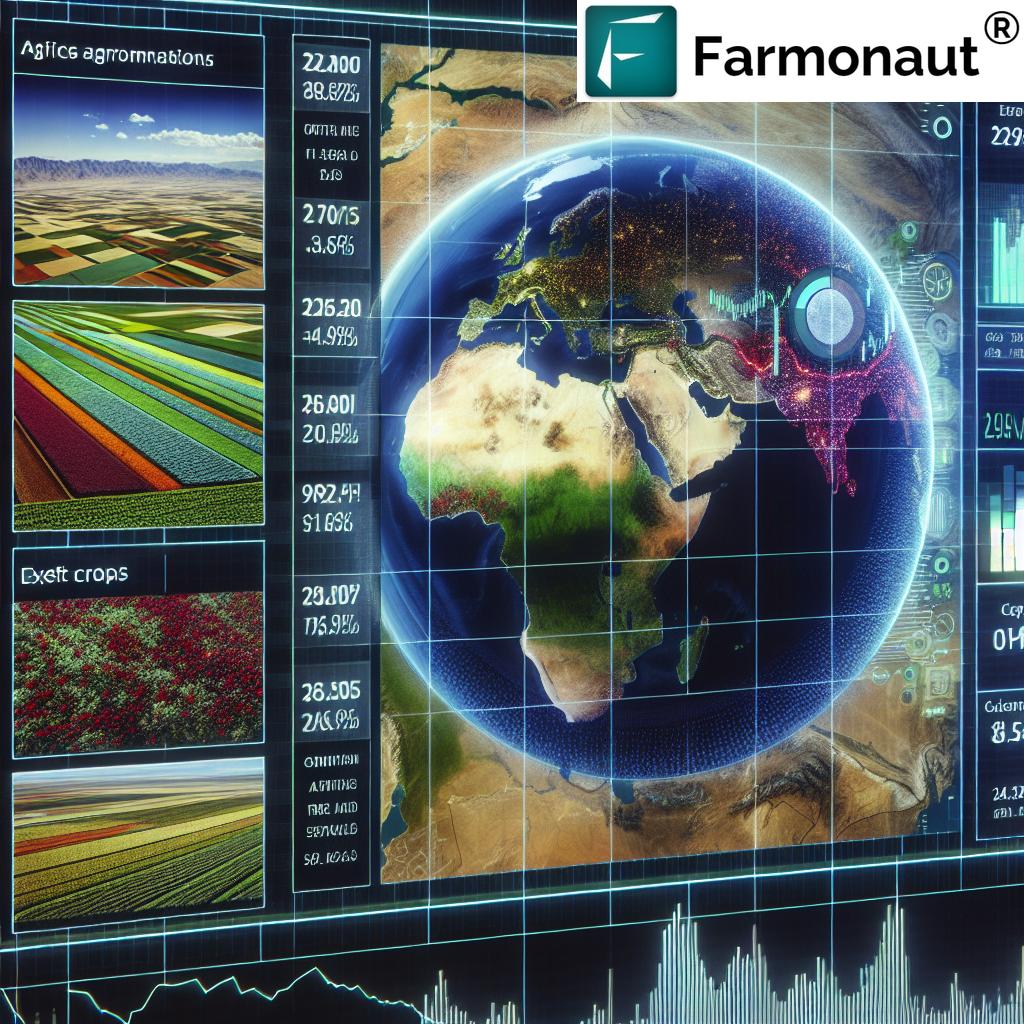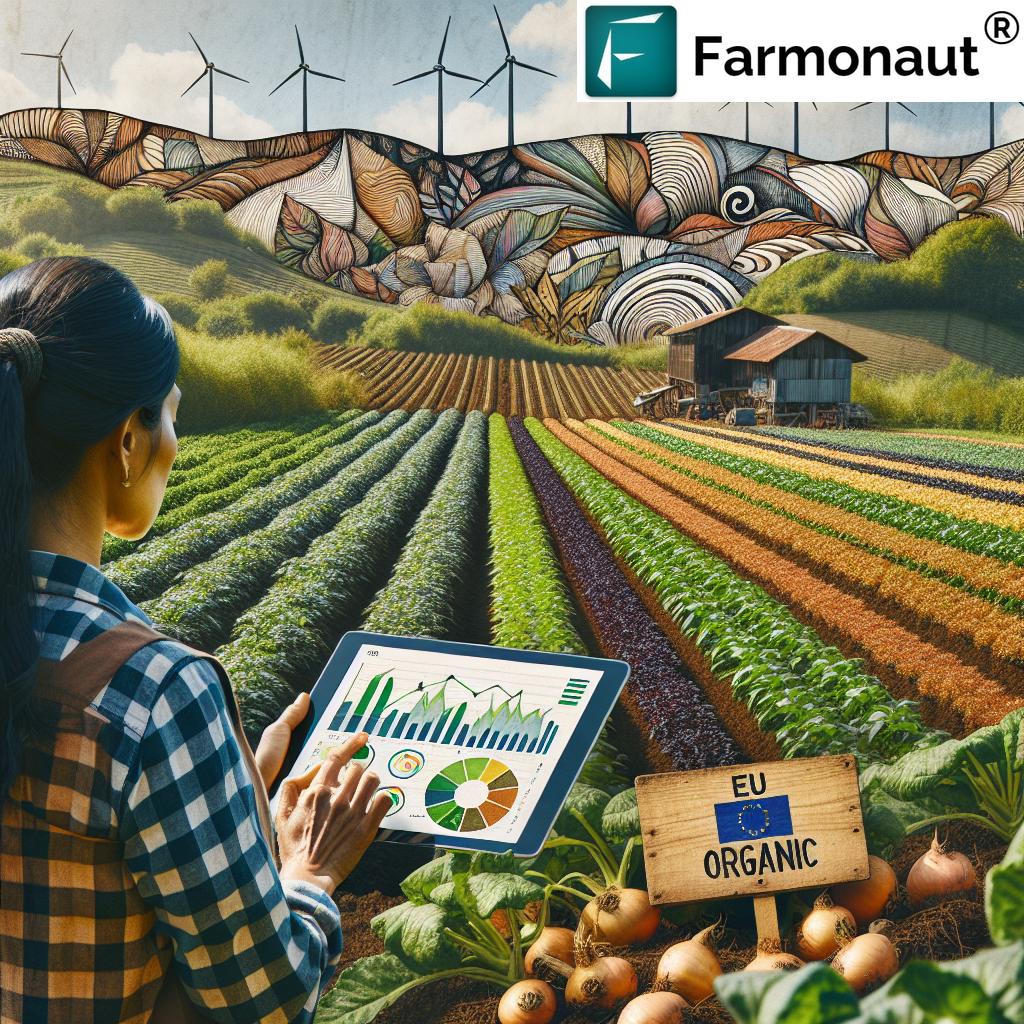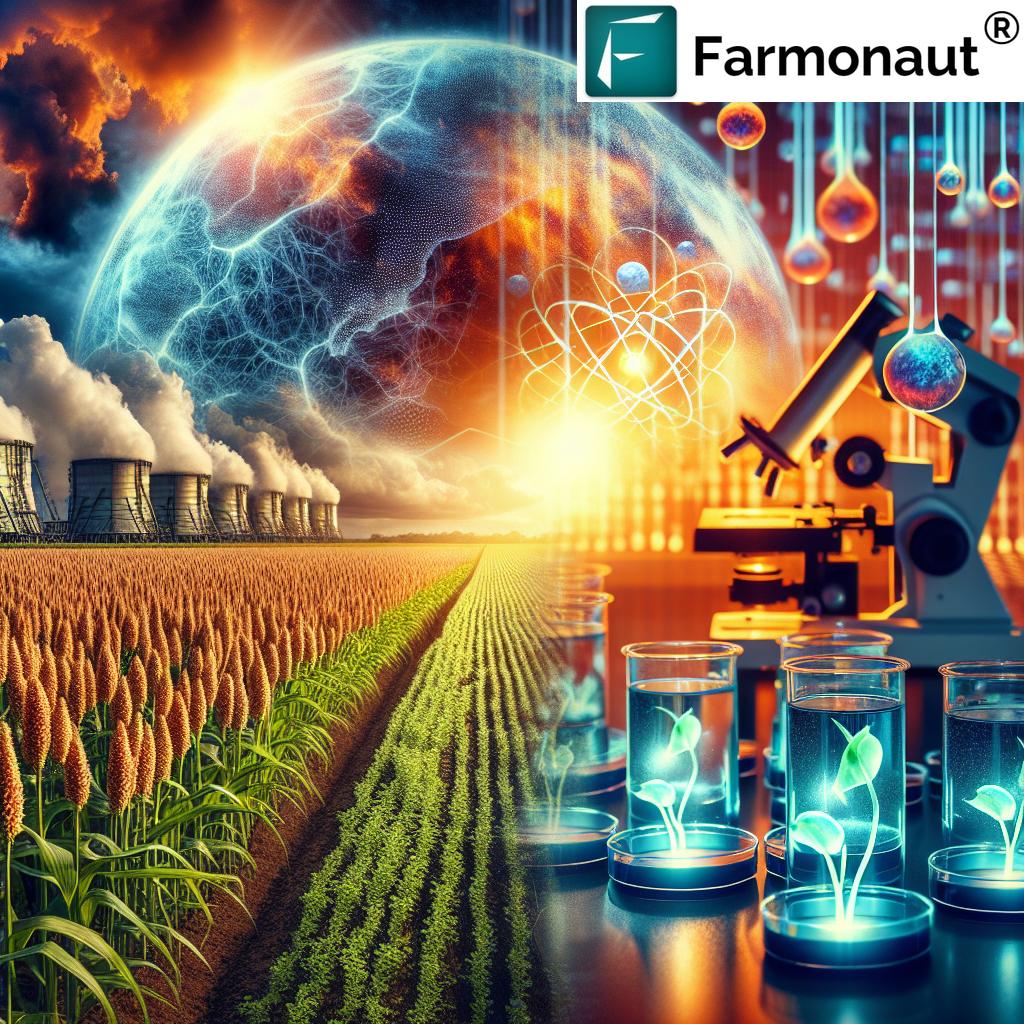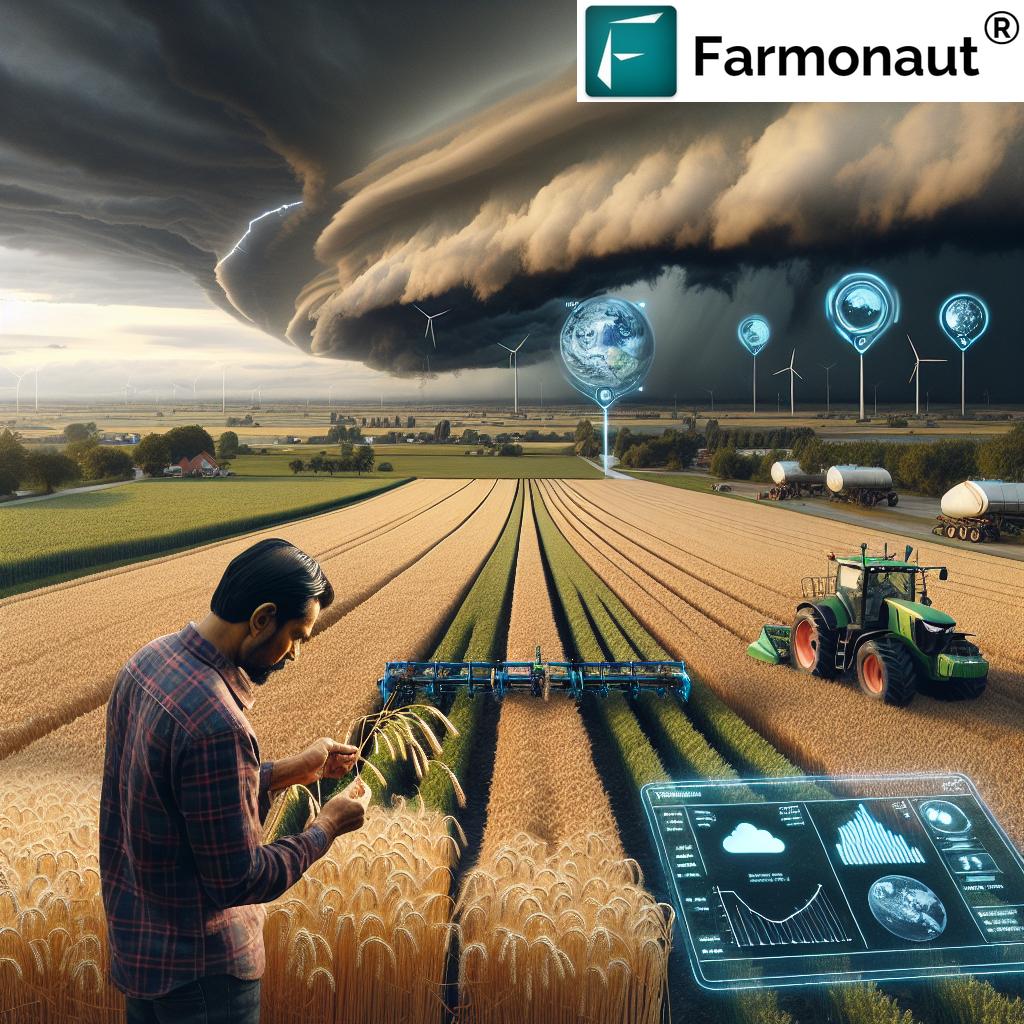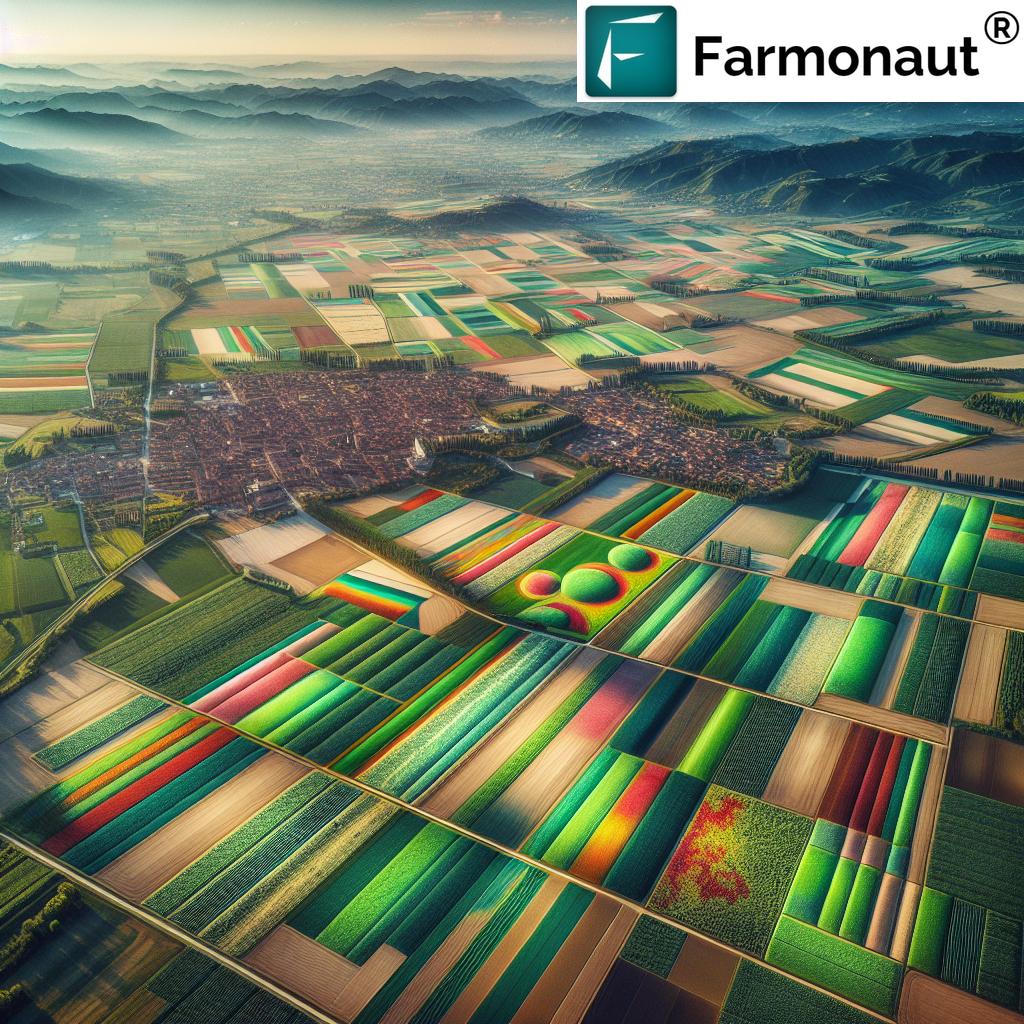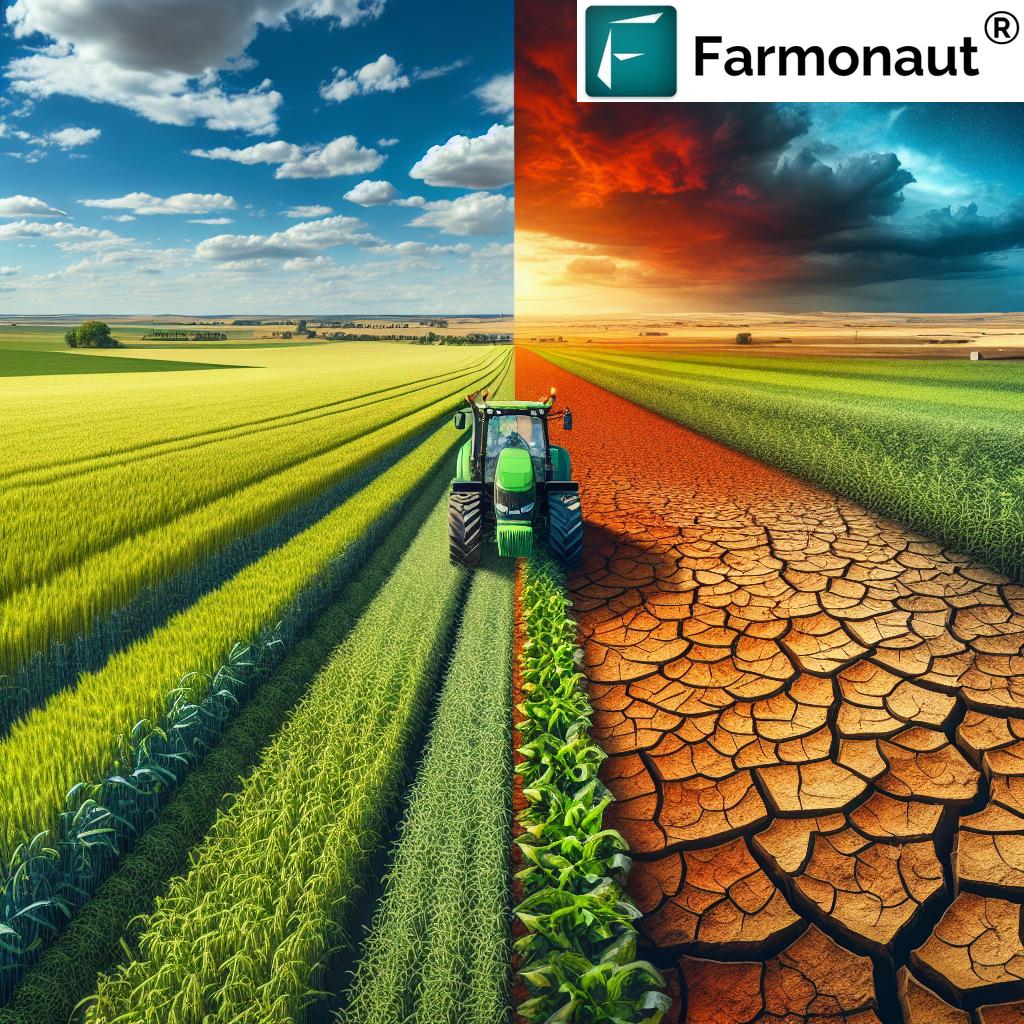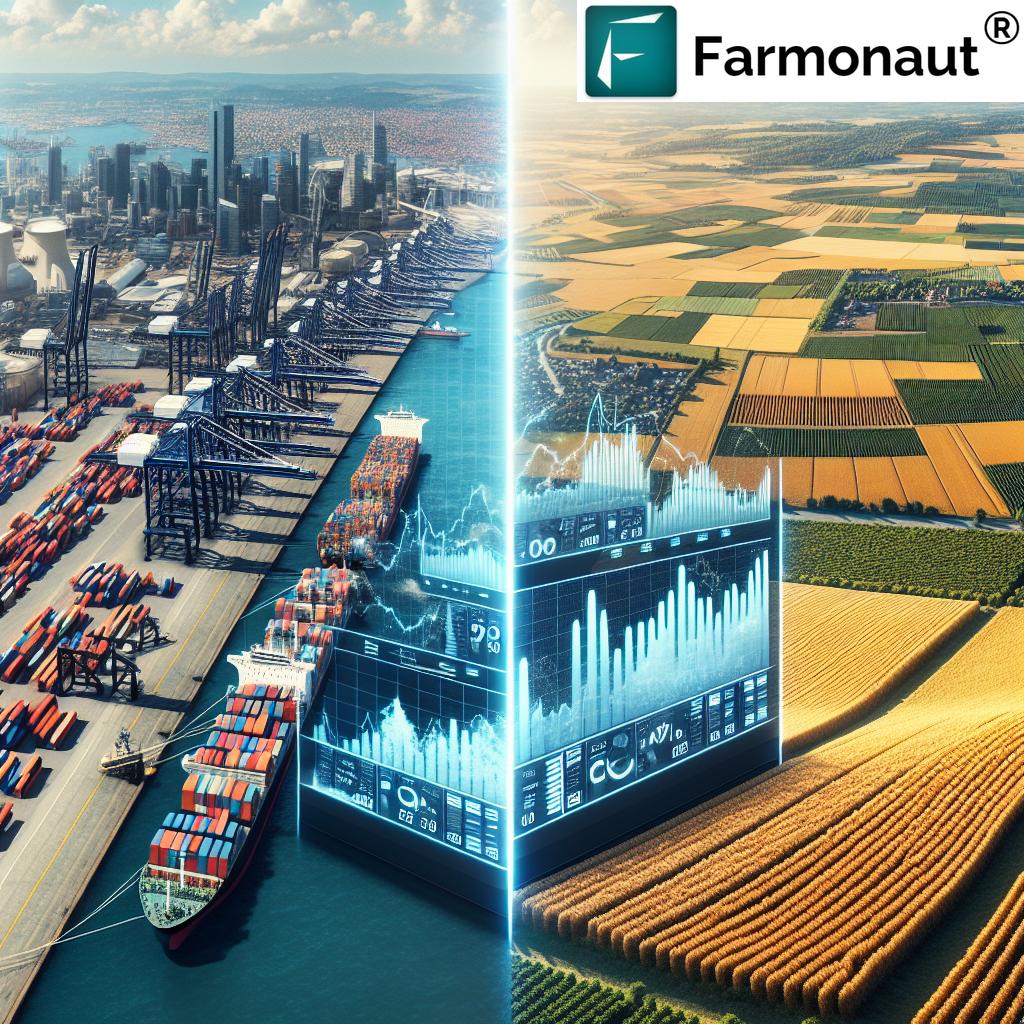Revolutionizing European Agriculture: How EU’s €3 Billion Investment Boosts Sustainable Farming and Climate Resilience
“The EU’s €3 billion investment targets SMEs and mid-sized companies in agriculture, forestry, and fisheries across Europe.”
In a groundbreaking move that promises to reshape the landscape of European agriculture, the European Union has unveiled a transformative €3 billion investment initiative. This ambitious program aims to revolutionize farming practices, bolster climate resilience, and pave the way for a more sustainable future in agriculture across the continent. As we delve into the details of this monumental endeavor, we’ll explore how this investment is set to impact farmers, the environment, and the broader agricultural sector in Europe.
The Vision Behind the Investment
At its core, this €3 billion initiative represents a significant commitment to sustainable agriculture financing and EU agricultural investments. The European Investment Bank (EIB) is spearheading this effort, recognizing the urgent need to address the challenges facing modern agriculture while promoting environmentally friendly practices.
The primary objectives of this investment include:
- Promoting green farming practices
- Enhancing climate resilience in agriculture
- Supporting small and medium-sized enterprises (SMEs) in the agricultural sector
- Fostering innovation in bioeconomy projects
- Improving soil health and water management
- Empowering young farmers and women in agriculture
By targeting these critical areas, the EU aims to create a more sustainable, efficient, and inclusive agricultural sector that can withstand the challenges of the 21st century.

Sustainable Agriculture Financing: A Game-Changer for European Farmers
One of the most significant aspects of this initiative is its focus on sustainable agriculture financing. The EIB’s approach is designed to address the unique challenges faced by farmers and agricultural businesses when seeking financial support for sustainable projects. Here’s how this investment is set to make a difference:
- Long-term financing options: The initiative offers extended repayment periods, allowing farmers to invest in sustainable practices without immediate financial strain.
- Tailored financial products: Specialized loans and financing options are being developed to meet the specific needs of agricultural SMEs and bioeconomy projects.
- Risk-sharing mechanisms: The EIB is working with local financial institutions to create risk-sharing facilities, making it easier for banks to lend to agricultural businesses.
This approach to financing is expected to catalyze additional investments, potentially mobilizing up to €8.4 billion over the next three years. For farmers looking to transition to more sustainable practices or invest in innovative technologies, this represents an unprecedented opportunity.
Green Farming Practices: The Heart of the Initiative
At the core of this investment is a strong emphasis on promoting green farming practices. These practices are essential for reducing agriculture’s environmental footprint while maintaining productivity. Some key areas of focus include:
- Organic farming: Support for farmers transitioning to organic production methods.
- Precision agriculture: Investment in technologies that optimize resource use and reduce waste.
- Agroforestry: Encouraging the integration of trees and shrubs into agricultural landscapes.
- Conservation tillage: Promoting practices that minimize soil disturbance and enhance soil health.
By supporting these practices, the EU aims to significantly reduce the sector’s greenhouse gas emissions, improve biodiversity, and enhance the overall sustainability of European agriculture.
“Young farmer support and women in agriculture initiatives are key components of the EU’s sustainable farming program.”
Digital Agriculture Tools: Bringing Farming into the Future
A significant portion of the investment is allocated to the development and adoption of digital agriculture tools. These technologies are set to revolutionize farming practices across Europe, offering unprecedented levels of precision and efficiency. Some of the key digital tools being supported include:
- Satellite-based monitoring systems: For real-time crop health assessment and yield prediction.
- IoT sensors: To monitor soil moisture, temperature, and other critical parameters.
- AI-powered decision support systems: To assist farmers in making data-driven decisions.
- Blockchain technology: For improving traceability in the agricultural supply chain.
These digital tools not only enhance productivity but also contribute to more sustainable resource management, aligning perfectly with the EU’s environmental goals.
For farmers and agricultural professionals looking to leverage advanced digital tools in their operations, platforms like Farmonaut offer comprehensive solutions. Farmonaut provides satellite-based farm management tools that can significantly enhance decision-making and resource efficiency in agriculture.

Climate-Resilient Farming: Preparing for the Future
With climate change posing significant threats to agriculture, a key focus of the EU’s investment is on promoting climate-resilient farming techniques. This involves:
- Drought-resistant crop varieties: Investment in research and development of crops that can withstand changing climate conditions.
- Water-efficient irrigation systems: Support for technologies that optimize water use in agriculture.
- Climate-smart agricultural practices: Promoting farming methods that are adaptable to changing weather patterns.
- Early warning systems: Developing tools to predict and mitigate the impacts of extreme weather events on agriculture.
By focusing on climate resilience, the EU aims to safeguard food security and protect farmers’ livelihoods in the face of increasing environmental challenges.
Soil Health Management: The Foundation of Sustainable Agriculture
Recognizing the critical role of soil health in sustainable agriculture, the EU’s investment places significant emphasis on soil health management. This includes:
- Soil conservation practices: Promoting techniques that prevent erosion and maintain soil structure.
- Organic matter enhancement: Supporting practices that increase soil organic carbon content.
- Reduced chemical inputs: Encouraging alternatives to chemical fertilizers and pesticides.
- Soil biodiversity: Investing in research to understand and enhance soil microbial communities.
These efforts are crucial for maintaining long-term agricultural productivity while minimizing environmental impact.

Sustainable Water Management in Agriculture: A Critical Focus
Water scarcity is becoming an increasingly pressing issue in many parts of Europe. The EU’s investment addresses this challenge through:
- Efficient irrigation technologies: Supporting the adoption of precision irrigation systems.
- Water recycling and reuse: Investing in technologies for treating and reusing agricultural wastewater.
- Rainwater harvesting: Promoting systems to capture and store rainwater for agricultural use.
- Watershed management: Supporting projects that protect and restore water resources at the landscape level.
These initiatives aim to reduce the agricultural sector’s water footprint while ensuring sustainable production in the face of changing climate patterns.
Young Farmer Support Programs: Nurturing the Next Generation
Recognizing the importance of attracting and retaining young talent in agriculture, the EU’s investment includes targeted support for young farmers. This includes:
- Start-up grants: Financial support to help young people establish their farming operations.
- Mentorship programs: Connecting young farmers with experienced professionals for guidance and support.
- Training and education: Investing in agricultural education and skills development programs.
- Land access initiatives: Supporting programs that help young farmers acquire or lease agricultural land.
These programs are crucial for ensuring the long-term sustainability and innovation in European agriculture.
Initiatives for Women in Agriculture: Promoting Inclusivity
The EU’s investment also places a strong emphasis on supporting women in agriculture, recognizing their vital role in the sector. Key initiatives include:
- Leadership programs: Supporting women in taking on leadership roles in agricultural organizations and businesses.
- Access to finance: Developing financial products tailored to the needs of women farmers and entrepreneurs.
- Training and skill development: Investing in programs that enhance women’s technical and managerial skills in agriculture.
- Networking opportunities: Creating platforms for women in agriculture to connect, share experiences, and collaborate.
These initiatives aim to address gender disparities in the agricultural sector and tap into the full potential of women’s contributions to sustainable farming.
Bioeconomy Project Funding: Fostering Innovation
A significant portion of the EU’s investment is dedicated to supporting bioeconomy projects. This focus on bioeconomy represents a forward-thinking approach to agriculture, aiming to create a more sustainable and circular economic model. Key areas of investment include:
- Bioenergy production: Supporting projects that convert agricultural waste into renewable energy.
- Bio-based materials: Investing in research and development of materials derived from agricultural products.
- Circular economy initiatives: Promoting projects that minimize waste and maximize resource efficiency in agriculture.
- Biotechnology research: Funding innovative biotechnological solutions for sustainable agriculture.
These bioeconomy projects are expected to create new value chains and economic opportunities within the agricultural sector while contributing to environmental sustainability.
Agricultural Insurance for Extreme Weather: Building Resilience
As climate change increases the frequency and severity of extreme weather events, the EU’s investment includes a focus on innovative agricultural insurance solutions. This includes:
- Index-based insurance: Developing insurance products that pay out based on predefined weather indices.
- Risk assessment tools: Investing in technologies to better predict and assess weather-related risks to agriculture.
- Public-private partnerships: Collaborating with the insurance sector to create more accessible and comprehensive coverage for farmers.
- Education and awareness: Programs to help farmers understand and utilize agricultural insurance effectively.
These insurance initiatives aim to provide a safety net for farmers, encouraging them to adopt sustainable practices even in the face of increasing climate uncertainty.
EU’s €3 Billion Agricultural Investment: Key Focus Areas and Impact
| Focus Area | Investment Allocation (Estimated) | Expected Impact |
|---|---|---|
| Sustainable Farming Practices | 25% | Reduction in greenhouse gas emissions, improved soil health, increased biodiversity |
| Digital Agriculture Tools | 20% | Enhanced productivity, optimized resource use, data-driven decision making |
| Climate Resilience | 15% | Improved adaptive capacity, reduced crop losses due to extreme weather |
| Soil Health Management | 10% | Increased soil organic matter, improved water retention, reduced erosion |
| Water Management | 10% | Reduced water consumption, improved irrigation efficiency, better drought resilience |
| Young Farmer Support | 10% | Increased number of young farmers, improved farm succession, innovation in farming practices |
| Women in Agriculture Initiatives | 10% | Greater gender equality in agriculture, increased women’s participation in leadership roles |
The Role of Technology in Implementing the EU’s Vision
As we’ve seen, technology plays a crucial role in realizing the EU’s vision for sustainable and resilient agriculture. Digital tools and platforms are at the forefront of this transformation. For instance, satellite-based farm management solutions like those offered by Farmonaut can significantly contribute to achieving the goals set out in this investment initiative.
Farmonaut’s platform provides valuable services such as real-time crop health monitoring, AI-based advisory systems, and resource management tools. These technologies align perfectly with the EU’s focus on digital agriculture tools and sustainable farming practices.
For those interested in leveraging such technologies, Farmonaut offers various access points:
- Mobile Apps: Available for both Android and iOS devices, allowing farmers to monitor their fields on the go.
- Web Application: A comprehensive platform accessible through web browsers for detailed analysis and management.
- API Access: For developers and businesses looking to integrate satellite and weather data into their own systems.
To explore these options, you can access Farmonaut’s services through the following links:
For developers interested in integrating Farmonaut’s data into their own applications, the API documentation provides comprehensive information on available endpoints and data structures.
Farmonaut Subscriptions
Conclusion: A Sustainable Future for European Agriculture
The EU’s €3 billion investment in agriculture represents a pivotal moment in the sector’s history. By focusing on sustainable practices, digital innovation, and inclusivity, this initiative sets the stage for a more resilient and environmentally friendly agricultural sector in Europe. As these investments take root, we can expect to see significant transformations in how farming is conducted across the continent.
The success of this initiative will depend on the collective efforts of farmers, policymakers, researchers, and technology providers. By embracing the opportunities presented by this investment and leveraging innovative tools and practices, European agriculture can lead the way in sustainable food production and environmental stewardship.
As we move forward, it’s clear that the future of agriculture in Europe is not just about producing more food, but about doing so in a way that protects our planet and ensures the long-term viability of farming communities. The EU’s investment is a bold step in this direction, promising a greener, more sustainable, and more inclusive future for European agriculture.
FAQs
- Q: How will the EU’s €3 billion investment benefit small farmers?
A: The investment includes targeted support for SMEs, providing access to financing, technology, and training that might otherwise be out of reach for smaller operations. - Q: What types of digital agriculture tools are being supported?
A: The initiative supports a range of digital tools, including satellite-based monitoring systems, IoT sensors, AI-powered decision support systems, and blockchain technology for supply chain traceability. - Q: How does this investment address climate change in agriculture?
A: The investment focuses on climate-resilient farming techniques, including the development of drought-resistant crops, water-efficient irrigation systems, and early warning systems for extreme weather events. - Q: What opportunities are there for young people interested in agriculture?
A: The initiative includes start-up grants, mentorship programs, training and education opportunities, and land access initiatives specifically designed to support young farmers. - Q: How does the investment promote sustainable water management?
A: It supports the adoption of efficient irrigation technologies, water recycling and reuse systems, rainwater harvesting, and watershed management projects.
By addressing these critical areas, the EU’s investment is set to transform European agriculture, making it more sustainable, resilient, and prepared for the challenges of the 21st century.



